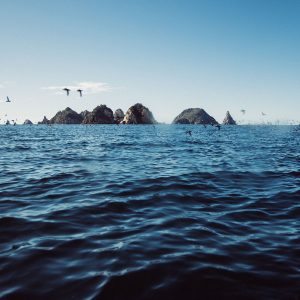Environmental, fishing and marine conservation groups have joined to fight clauses in the Fisheries Amendment Bill. While seemingly harmless, they in fact smuggle through major changes that aim to remove public and ministerial oversight from future fisheries decisions. Instead it enables bureaucrats working closely with industry players to maximise their commercial fishing returns.
The proposed legislation also prioritises commercial fishing for the first time in New Zealand history, and leaves more than 600,000 Kiwi fishers competing for fish against a highly competitive industrial fishing sector.
New Zealand Sport Fishing Council president Bob Gutsell said: “This is a direct attack on the ability of Kiwis to catch seafood for their family and friends. The bill is lacking specifics, which leaves the reader to assume the detail will be revealed from behind closed doors when the bill is passed. The bill focuses on rules that set Total Allowable Catch (TAC)[1] and Total Allowable Commercial Catch (TACC)[2] which means non-commercial fishers only get what’s left.”
Greenpeace Oceans Campaigner, Ellie Hooper said: “It’s outrageous that this bill could prevent public consultation. Protecting the ocean for the future is a matter that concerns us all, not just commercial fishing companies. New Zealanders must be allowed to have their say on how the marine environment is looked after, and indeed have until now been central to creating positive change for the ocean.
“While we’re pleased to see cameras on boats enabled through this Bill, the Government must ensure ordinary people are not shut out of decision making around something as critical as the health of the ocean.”
Former commercial fisher Barry Torkington said: “It’s a quid pro quota. In return for cameras on boats, this bill quietly lays the foundation for changes that have been widely unpopular in the past, yet highly desirable to commercial interests. These changes were first proposed in 2000 and prompted public outrage resulting in more than 60,000 submissions against them. The same proposals have surfaced several times in the intervening years and have been unable to find political support due to public objections. We need to stand up for democracy and stand up for the sustainability of our fishery.”
LegaSea programme lead, Sam Woolford said: “New Zealanders are growing increasingly concerned about the way our fisheries are being managed and how this mismanagement is affecting them at a local level. In an independent, nationwide survey[3] of over 2000 people nearly 70% of respondents agreed that an independent inquiry into the QMS is warranted. Only 5% felt it was not. The public at large cares about what is happening to our national, natural resources and in many instances have lost faith in the system.
“Just last year, using the public submission process, about 9,000 Kiwis supported the ongoing rebuild of the West Coast snapper population. The minister David Parker subsequently made a conservative decision which prevented commercial fishers from taking an extra 900,000 kilos of snapper every single year. There are many instances where a public outcry has overturned ministry recommendations that put commercial interests ahead of the health of the marine environment. The voice of everyday Kiwis will be ignored if this bill goes ahead.”
Forest and Bird’s Geoff Keey said: “Decisions about fishing are challenging, contested and critical for our ocean wildlife. That’s why it’s vital that everyone has a proper say in these decisions.
“Last year, Forest & Bird won a High Court legal decision confirming that tarakihi catch limit decisions must put sustainability before commercial interests. This case highlights how public participation in fisheries decisions is critical for ensuring the law is properly applied.”
“We’re urging the Government to focus on overhauling discarding rules and putting cameras on boats. The Government must take more time before amending fisheries decision making processes, to make sure decisions align with the Government’s plan for nature outlined in Te Mana o te Taiao. In particular, this plan calls for zero bycatch and a shift towards ecosystem-based fisheries management – that is, managing the entire interconnected ocean ecosystem, not just individual species.”
New Zealand Underwater Association’s Allan Davidson, said: “The industry has repeatedly shown they will push to harvest as many fish as economically possible, to the detriment of fish stocks. This bill paves the way for commercial fishing to continue to exploit fish populations, while cutting other non-commercial interests out of the conversation.”
Tairua Sport Fishing Club President Warren Maher said: “If enacted, it will be a disaster for already vulnerable fish species. Coromandel scallops were managed using the type of preset harvesting rule proposed in the bill – and now most of the region’s scallops are gone. In fact, almost all of New Zealand’s scallop fisheries are closed due to mismanagement. And crayfish in the Hauraki Gulf are considered functionally extinct after being managed using this approach.”
The solution is simple. The Minister can easily progress parts of this bill that finally enables cameras on commercial fishing boats. But he should split off those parts of the bill that disguise massive implications for Kiwis’ ability to ensure thriving fisheries for future generations. Changes which put commercial interests above environmental and non-commercial needs for the first time.
This bill strips the Fisheries Minister of the ability to balance conservation, commercial fishing and the public’s interest in a healthy marine environment supporting thriving fisheries.
Submissions to the Primary Production Committee close on Friday, June 17. Submissions can be made here.
[1] https://fs.fish.govt.nz/Page.aspx?pk=78&dk=1842
[2] https://fs.fish.govt.nz/Page.aspx?pk=78&dk=1785
[3] https://www.nzsportfishing.co.nz/wp-content/uploads/2020/08/FOOF-submission-joint-recreational-23-December-2016.pdf





